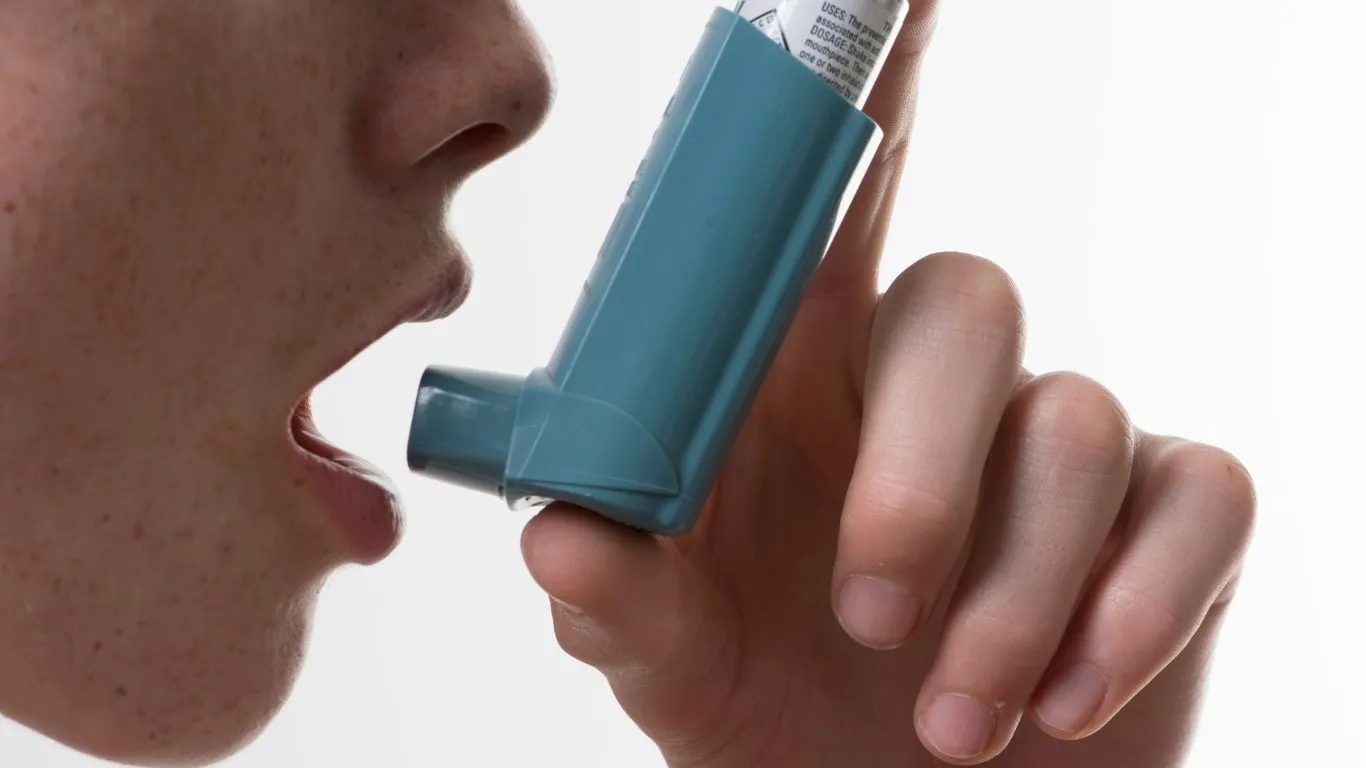Does Asthma Get Worse with Age? Essential Facts You Need to Know
Living life alongside asthma, whether personally or professionally, opens your eyes to just how complex this condition really is. Working as a Pulmonary Nurse for years, I’ve seen firsthand the way asthma behaves differently from person to person. One question that keeps popping up from patients, family, even friends is — does asthma get worse with age? It’s such a valid concern and honestly, the answer isn’t a simple yes or no. There’s a lot that factors into how asthma changes over time, and trust me, age plays a bigger role than most people realize.
Understanding Asthma: A Quick Refresher

Before we jump deep into whether asthma gets worse with age, it’s good to refresh on what asthma actually is. Asthma is a chronic (aka long-term) lung condition where the airways get inflamed and narrow, making it super hard to breathe. Throw in some mucus production and those classic wheezing fits, and you’ve got a condition that can range from mildly annoying to downright life-altering.
During my hospital shifts, it’s not unusual to see patients who have had asthma since childhood and are now well into their senior years — some doing surprisingly well, others struggling a lot more. So why the big difference?
Does Asthma Get Worse With Age? Let’s Break It Down

This is where things start getting really interesting (and a little complicated). In simple words: yes, asthma can get worse as you age, but it’s not guaranteed for everyone. Let’s walk through some of the reasons why.
1. Natural Aging of the Lungs
Just like our skin gets wrinkles and our joints start creaking, our lungs also go through aging. After about the age of 30, lung function naturally declines a little each year. For someone with asthma, this decline can make symptoms like shortness of breath and wheezing much more noticeable.
- Less elasticity in lung tissues
- Weaker respiratory muscles
- Reduced clearance of mucus and irritants
I remember one patient, Mr. Johnson, who was 67 when I met him. He had well-managed asthma his whole life but found himself getting winded just from walking to the mailbox. Turns out, his asthma hadn’t worsened per se — it was his aging lungs making everything feel tougher.
2. Longer Exposure to Triggers
Over the decades, exposure to allergens, pollutants, smoke, and infections piles up. Even if you’ve been pretty careful, that cumulative exposure adds stress to your airways. It’s like wear and tear over time, and sadly, your lungs don’t have an endless warranty.
- Environmental pollutants
- Pet dander and dust mites
- Workplace chemicals
- Smoking history (even secondhand exposure!)
I once worked with a retired teacher who swore she never smoked a day in her life — but decades of working in old, dusty classrooms finally caught up with her. Her asthma flare-ups became a lot more frequent once she hit her sixties.
3. Other Health Conditions Complicating Things
With age, it’s not just asthma you’re managing anymore. Many older adults are also juggling other chronic conditions like hypertension, diabetes, or heart disease. These can interact with asthma in sneaky ways, making it feel worse even if your asthma itself hasn’t progressed significantly.
Also, medications for other conditions can sometimes interfere with asthma management — beta-blockers, for example, can actually cause airway constriction. I always tell my patients to make sure all their doctors are on the same page about every medication they’re taking.
Why Early Intervention Matters More Than Ever

One thing I’ve learned over and over again in my pulmonary nursing career: how you manage asthma early on seriously shapes how it behaves later in life. Keeping inflammation under control, avoiding known triggers, and following a solid asthma action plan can all slow down or even prevent worsening symptoms with age.
Unfortunately, a lot of people tend to “outgrow” their asthma when they’re younger (or think they do) and stop using inhalers, skip checkups, or ignore mild symptoms. Then, decades later, they’re blindsided when breathing becomes a daily challenge. It’s heartbreaking because often, a little more attention earlier could have made a huge difference.
Signs Your Asthma Might Be Worsening
So how do you know if what you’re feeling is normal aging or your asthma kicking up a notch? Here are some red flags to watch for:
- Needing your rescue inhaler more than twice a week
- Waking up at night coughing or wheezing
- Getting winded during everyday activities (like grocery shopping)
- More frequent respiratory infections
- Lower peak flow readings compared to your normal baseline
If you’re noticing any of these changes, it’s time to have a serious chat with your doctor. Don’t brush it off as “just getting older.”
How Asthma Treatment Changes As You Get Older

Managing asthma at 25 looks a whole lot different than managing it at 65 — trust me, I’ve seen it a hundred times working bedside. Your body changes, your lifestyle changes, and yep, your asthma management needs a little upgrade too.
One thing I always remind my older patients is that the “one inhaler fits all” approach doesn’t work forever. For instance, you might need:
- A different inhaler device that’s easier to use if you have arthritis or weaker hand strength
- Higher-dose inhaled corticosteroids
- Combination therapies (like adding a long-acting bronchodilator)
- Oxygen therapy if lung function drops significantly
And let’s not forget — even technique matters way more than people think. I can’t count how many times I’ve had to re-teach inhaler techniques to older adults who thought they had it mastered. (Spoiler alert: most weren’t getting full doses!)
Reviewing Medications Regularly
One of the smartest moves as you age is to schedule a medication review with your doctor or a clinical pharmacist. It’s not just about your asthma meds — it’s making sure there aren’t weird drug interactions happening with heart meds, blood pressure pills, or anything else you’re taking.
Funny enough, during a clinic rotation, I once met a spry 72-year-old woman who swore her asthma was getting worse… only to find out her new beta-blocker was sabotaging her breathing without her realizing it. A simple switch, and she was back to walking her golden retriever without a wheeze!
Building an Asthma-Friendly Lifestyle After 50

Alright, so beyond medications, what else can you do? A whole lot, honestly. Lifestyle choices have a huge impact on how asthma behaves as you get older.
Exercise — But Smartly
I get it — when you’re huffing and puffing just climbing stairs, the idea of working out sounds brutal. But regular, moderate exercise strengthens your lungs, improves oxygen efficiency, and boosts overall stamina. You just need to be strategic:
- Opt for low-impact activities like swimming, walking, or stationary cycling
- Always warm up before and cool down after
- Keep your rescue inhaler close — better safe than sorry
I used to run a pulmonary rehab program, and honestly, seeing how much stronger and more confident patients became after just a few weeks of guided exercise sessions was incredible. You are way stronger than your asthma wants you to believe!
Watching Out for Weight Changes
Another biggie: weight gain. Even a few extra pounds can press on your diaphragm and lungs, making breathing more challenging. In fact, studies show that obesity can worsen asthma control dramatically. The good news? Even modest weight loss — think 5% of your body weight — can make a huge difference in symptom control.
Stay On Top of Respiratory Infections
As we age, our immune system isn’t quite the superhero it used to be. Catching a cold, the flu, or COVID-19 can trigger severe asthma flares. That’s why vaccinations (flu shot, pneumococcal vaccine, COVID boosters) aren’t just “good ideas” — they’re essential asthma protection tools.
I tell all my patients: if you’re going to invest time in anything this year, make it staying up-to-date on your vaccines and practicing good hand hygiene. Seriously, it’s one of the easiest ways to avoid a trip to the ER.
Common Myths About Asthma and Aging

Over the years, I’ve heard so many myths from patients — and honestly, I get it. Asthma isn’t talked about enough in older adults. Let’s clear up a few major ones:
Myth 1: “I outgrew my asthma, so it can’t come back.”
Sorry to break it to you — asthma can go into remission for years, even decades, but it doesn’t necessarily disappear. Hormonal changes, environmental exposures, or lung aging can easily “reactivate” it later in life.
Myth 2: “Shortness of breath is just part of getting older.”
Absolutely not. Sure, lung function declines a bit with age, but if you’re gasping walking from the kitchen to the living room, that’s not normal aging — it’s a red flag you need a full respiratory workup.
Myth 3: “Only kids need asthma management plans.”
Adults — especially older adults — actually need even more structured asthma plans. Your plan should cover daily meds, emergency steps, peak flow monitoring, and when to seek help.
When I help my older patients draft action plans, they often feel so much more in control, like they have a battle plan ready to go. It takes the guesswork (and the panic) out of flare-ups.
Proactive Steps to Keep Asthma in Check at Any Age
At the end of the day, whether you’re 25 or 75, the basics of asthma management don’t change — but the importance of being proactive absolutely increases with age.
- Stay on top of doctor visits — at least twice a year for asthma checkups
- Monitor your peak flow readings regularly
- Recognize early warning signs of exacerbations
- Adapt your living environment (HEPA filters, avoid scented products, control humidity)
- Educate yourself — the more you know, the better you’ll breathe
Honestly, one of the biggest lessons from my time as a Pulmonary Nurse is this: you have way more power over your asthma than you might think. Aging doesn’t have to mean losing control over your breathing — not if you take the right steps now.
The Emotional Side of Asthma as You Get Older

Something we don’t talk about enough — but really need to — is how asthma affects your emotional and mental health, especially as you age. Honestly, after years as a Pulmonary Nurse, I’ve seen it time and time again: it’s not just about the lungs. The anxiety, the fear of flare-ups, the frustration of feeling “limited” — it all piles up.
Some common emotional hurdles older adults with asthma face include:
- Fear of attacks — worrying about when and where the next one might hit
- Social isolation — skipping outings or travel out of fear
- Depression — feeling down about new limitations
- Health anxiety — hyper-focusing on every cough or wheeze
I’ll never forget Mrs. Lee, a sweet patient of mine in her 70s, who stopped visiting her grandkids because she was scared she’d have an asthma attack far from her inhaler. It broke her heart — and honestly, it broke mine too. We worked together to rebuild her confidence, but it was a real journey.
Ways to Cope Better Emotionally
- Connect with support groups, even online communities
- Practice relaxation techniques like deep breathing and mindfulness
- Set small, achievable goals to rebuild confidence
- Work with a therapist if needed — mental health matters too!
Managing asthma isn’t just a physical game — it’s a mental one too. Giving yourself grace, staying informed, and asking for help when needed can make a world of difference.
New Innovations Making Asthma Management Easier

Here’s some good news: asthma management tools and treatments have come a long way. If it’s been a few years since you had a full asthma review, you might be missing out on some amazing advances.
Biologic Therapies
For folks with moderate to severe asthma that doesn’t respond well to traditional inhalers, biologic therapies like monoclonal antibodies are absolute game-changers. These target the underlying inflammation at the immune system level — super high-tech stuff! You can read more about biologics from trusted sources like NIH.
Smart Inhalers
Yes, smart inhalers are a thing now! These devices track your usage, remind you to take doses, and even send info to your doctor. It’s like having a tiny asthma coach in your pocket.
Personalized Asthma Action Plans
Gone are the days of one-size-fits-all. Now, doctors are tailoring action plans based on genetics, lifestyle, occupation, and even allergy profiles. The more tailored your plan, the better your results — especially as your body changes with age.
During a recent conference I attended, it was exciting to hear how precision medicine is becoming the new norm in asthma care. It’s honestly inspiring how much hope there is for better, more customized breathing solutions.
Tips for Talking to Your Doctor About Asthma Changes
One thing I always tell my patients — don’t wait until your asthma gets noticeably worse to bring it up. Your doctor can only help with what they know! Here’s how to have a better conversation:
- Keep a daily symptom diary for a few weeks before your appointment
- Note any activities you’re avoiding because of breathing issues
- Ask about stepping up therapy if nighttime symptoms or rescue inhaler use increases
- Bring up any emotional struggles too — they matter
And if your doctor brushes off your concerns? Find one who listens. Seriously. Advocacy matters when it comes to living your best life with asthma.
Living Your Best Life — At Every Age
Here’s the heart of it all: just because asthma might get more challenging with age doesn’t mean it gets to define you. With the right strategies, tools, and mindset, you can absolutely stay active, independent, and joyful for decades to come.
Some final empowering reminders:
- Be proactive, not reactive — don’t wait for a crisis to make changes
- Stay educated — knowledge is your best inhaler, honestly
- Surround yourself with support — you don’t have to do this alone
- Never stop advocating for your own health — you deserve top-tier care, no matter your age
From my heart to yours — I’ve watched so many older adults reclaim control over their breathing and their lives. I know you can too. Just take it one breath, one step, one decision at a time. You’ve got this.
References
- National Institutes of Health (NIH)
- Health.com
- Centers for Disease Control and Prevention (CDC)
- Mayo Clinic
Disclaimer
This article is for informational purposes only and is based on personal professional experiences as a Pulmonary Nurse combined with current medical knowledge. It is not a substitute for professional medical advice, diagnosis, or treatment. Always seek the guidance of your physician or other qualified health provider with any questions you may have regarding a medical condition.

Bianca Nala is a compassionate Nurse Practitioner with a strong background in primary and respiratory care. As a health writer for Healthusias.com, she combines her clinical expertise with a talent for clear, relatable storytelling to help readers better understand their health. Bianca focuses on topics like asthma, COPD, chronic cough, and overall lung health, aiming to simplify complex medical topics without losing accuracy. Whether she’s treating patients or writing articles, Bianca is driven by a single goal: making quality healthcare knowledge accessible to everyone.







